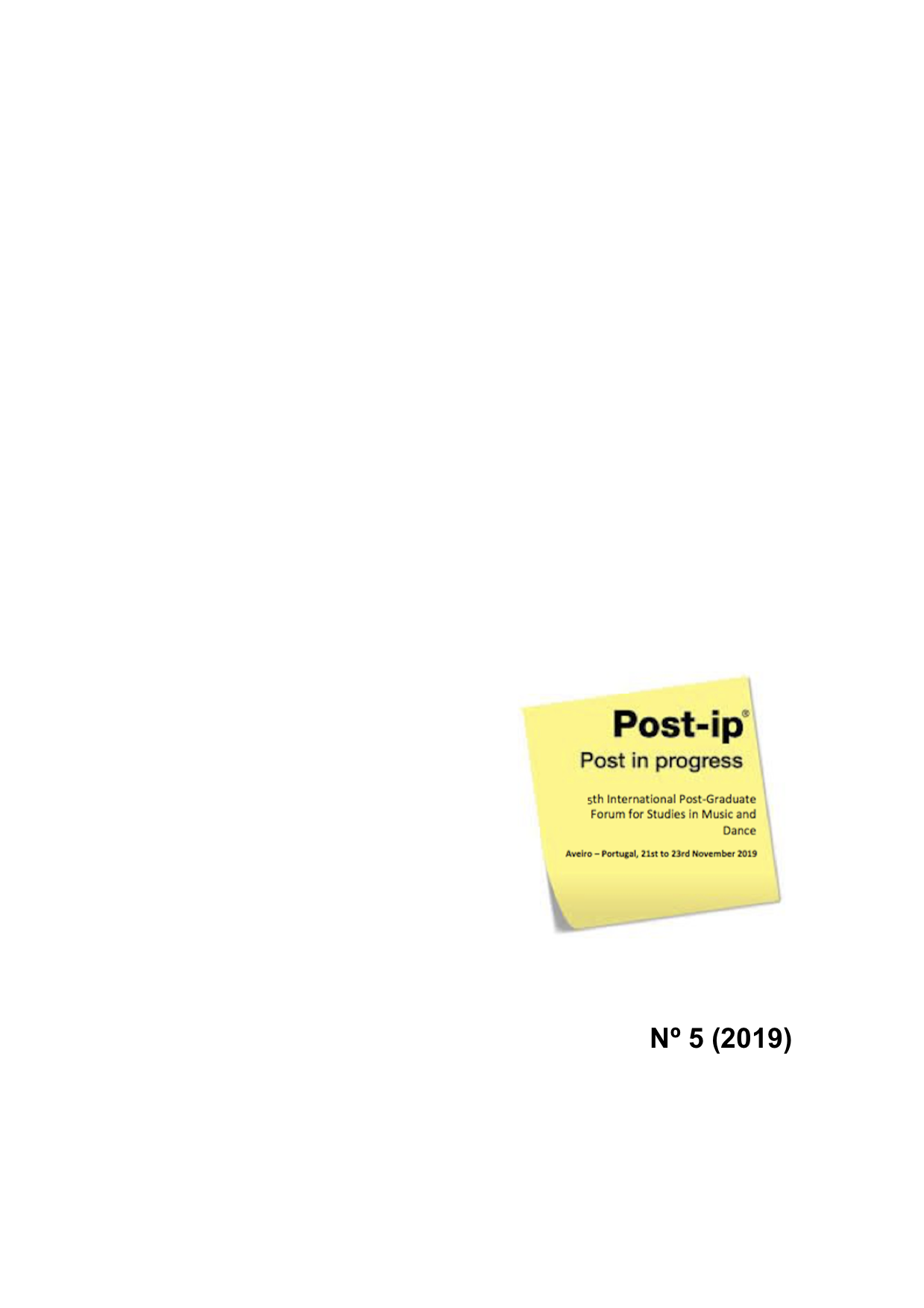“Tocam por qualquer preço”: O estatuto do músico na vila termal de Vidago durante o Estado Novo
Resumo
Vidago, uma vila rural de Trás-os-Montes, ganhou visibilidade pelas suas águas termais premiadas (Cruz 1970; Pereira 1971; Salvador 2004). Com o propósito de se tornar um destino turístico privilegiado, passou por um processo de crescimento súbito e introdução de produtos e tecnologias da modernidade. Os estabelecimentos hoteleiros promoviam actividades desportivas e eventos musicais ao vivo para entreter os visitantes durante a temporada de termas (Pereira 2014). Entre a pluralidade de estilos e categorias musicais interpretados incluíam-se arranjos para banda, chanson française, tangos, árias de ópera, fados, jazz, música clássica, rancho folclórico – havendo uma clara preferência por versões de obras com alargada divulgação e popularidade, associadas a transmissões radiofónicas (Moreira, Cidra, e Castelo-Branco 2010). Foi um período favorável à formação de grupos musicais amadores vidaguenses e à contratação de instrumentistas profissionais exteriores a Vidago. Neste contexto, os músicos eram entendidos como prestadores de serviços e estavam sujeitos à sazonalidade da actividade termal, não permitindo independência financeira. Assim sendo, os músicos viam-se forçados a conciliar o trabalho musical com outros empregos anuais. Usavam esse argumento para se revoltarem contra a obrigatoriedade da profissionalização e pagamento de cotas durante todo o ano ao Sindicato dos Nacional dos Músicos (SNM), pelo que evitavam a sindicalização ou, uma vez sindicalizados, atrasavam sistematicamente o pagamento de cotas (Silva 2010; Fernandes 2018). Neste capítulo será abordado o estatuto dos músicos em Vidago entre 1933 e 1974, destacando as dinâmicas entre estes e as gerências dos hotéis, o SNM e a Casa do Povo local. Este estudo recorre a métodos da história e da etnomusicologia histórica, nomeadamente entrevistas a pessoas que assistiram às práticas musicais em estudo e pesquisa de arquivo no espólio do SNM (Howard 2014). Na linha que têm vindo a ser pensado na área da antropologia do turismo, considera-se que este é um fenómeno holístico, com implicações económicas, políticas, sociais, simbólicas e sonoras (Pinto e Pereiro 2010; Pereiro e Fernandes 2015; Sanchez e Carvalho 2019).
Referências
Baptista, Albino Moreira de Sousa. 1919. Station des eaux sulfureuses d’Entre-os-Rios. Porto: Clínica Hidrológica de Águas de Entre-os-Rios.
Castro, Mário de, e Frédéric Ducout. 2011. Vidago Palace. Gavião: Ramiro Leão.
Cruz, João Oliveira. 1970. Vidago - Sua História, Origem e Formação. Régua: Imprensa do Douro.
Fernandes, Maria. 2018. «Espólio do Sindicato Nacional dos Músicos: apresentação, análise e discussão dos dados recolhidos». Em ENIM. Porto.
Howard, Keith. 2014. «Foreword: The Past is No Longer a Foreign Country». Em Theory and Method in Historical Ethnomusicology, editado por Jonathan McCollum e David G. Hebert, ix–xiii. Lexington Books.
Maia, Celestino. 1955. «Catatermometria Geresiana (Primeiras Determinações)». Revista Clínica Higiene e Hidrologia.
———. 1959. O Gerês Medicinal e Turístico. Braga: Livraria Cruz.
Melo, Daniel. 2001. Salazarismo e cultura popular (1933-1958). Vol. 22. Estudos e Investigações. Lisboa: Imprensa de Ciências Sociais.
Moreira, Pedro Russo, Rui Cidra, e Salwa El-shawan Castelo-Branco. 2010. «Música Ligeira». Editado por Salwa El-shawan Castelo-Branco. Enciclopédia da Música em Portugal no Século XX. Lisboa: Círculo de Leitores.
Ortigão, Ramalho. 1944. Banhos de Caldas e Águas Minerais. Obras Completas de Ramalho Ortigão. Lisboa: Livraria Clássica.
Pereira, Manuel Joaquim. 1971. Cem anos de história e progresso de um povo (Vidago): 1865-1965. Lisboa: Oficinas de São José.
Pereira, Sérgio Manuel Rodrigues. 2014. «Vidago: de aldeia rural à vila termal (1908-1968)». Vila-Real: Universidade de Trás-os-Montes e Alto Douro.
Pereiro, Xerardo, e Filipa Fernandes. 2015. «Antropologia e turismo: dos trilhos, atores e espaços à genealogia da turistificação da Antropologia em Portugal». Pasos: Revista de turismo y patrimonio cultural 13 (2): 333–46. https://dialnet.unirioja.es/servlet/articulo?codigo=5089493&orden=0&info=link%5Cnhttps://dialnet.unirioja.es/servlet/extart?codigo=5089493.
Pinto, Roque, e Xerardo Pereiro. 2010. «Turismo e Antropologia : contribuições para um debate plural». Turismo e Desenvolvimento 13: 219–26.
Salvador, Floripo Virgílio. 2004. Memórias de Vidago. Edição do autor. https://goo.gl/2yW1e3.
Sanchez, Iñigo, e João Soeiro de Carvalho. 2019. «Sounds of Tourism - Project Presentation». Em Sounds of Tourism. Lisboa. https://www.soundsoftourism.pt/.
Silva, Manuel Deniz. 2010. «Sindicato dos Músicos». Editado por Salwa El-Shawan Castelo-Branco. Enciclopédia da Música em Portugal no Século XX. Lisboa: Temas e Debates.





